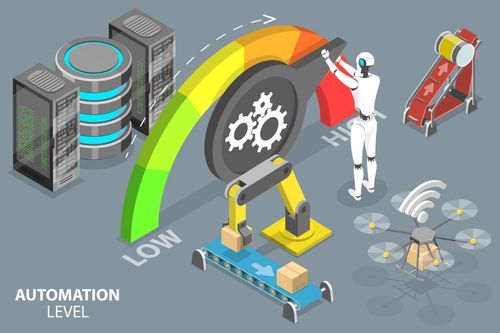AI fuels intelligent automation for businesses already benefiting from robotic process automation

AI fuels intelligent automation for businesses already benefiting from robotic process automation
Enterprises have for years seen the value of robotic process automation (RPA) for increased efficiencies, agility, resiliency and cost savings. Now with AI, they are realizing the benefits of intelligent automation (IA) as well, including plying AI-driven predictive analytics to improve IA and business outcomes, according to a new Omdia report, “RPA & Intelligent Automation Market Snapshot – 1Q22.”
The pandemic accelerated investments into RPA/IA, as many businesses had to step up their digital efforts and rethink processes around how they interacted with customers, partners and employees, according to Cassandra Mooshian, Omdia senior analyst of RPA and intelligent automation who wrote the report.
For example, digital, omnichannel customer experience (CX) platforms infused with AI, analytics and IA are increasingly critical to the success of an enterprise for retaining employees and customers in a competitive landscape for labor and business, respectively.
A top goal of companies in adopting RPA/IA is improving the customer experience, according to Omdia’s June 2021 Enterprise RPA & Intelligent Automation Study. RPA/IA can also free employees from spending time on mundane tasks and, if upskilled appropriately, allow them to then invest more time in higher-level tasks, generating positive business outcomes.
Here are best practices for enterprises and vendors to consider regarding RPA/IA:
Recommendations for enterprises:
Ensure the IT department is involved in purchasing decisions to meet security and AI governance policies.
In the case of a planned staff reduction due to RPA/IA, invest early on in training and upskilling the workforce such that they can adequately train bots and ML models. However, ensure the company is not losing its brain trust as a result of automation.
Enlist the help of a third party to alleviate challenges with RPA/IA implementation and process selection decisions. More RPA/IA vendors are acquiring or building out process mining and discovery capabilities to help enterprises choose the right processes to automate.
Recommendations for vendors:
Understand enterprise challenges and roadblocks to RPA/IA adoption— technical as well as cost and workforce issues—and adjust messaging accordingly.
Provide customers holistic guidance on managing challenges that encompasses not only implementation and bot maintenance but also the human impact.
Do your part in establishing secure and ethical AI practices.
Adjust pricing tiers and schemas to cater to early-stage users of RPA/IA as well as more advanced users and companies in the scaling stages. Subscriptions and enterprise license agreements are becoming increasingly important.
For the full Omdia report, click here.
About the Author(s)
You May Also Like


.jpg?width=700&auto=webp&quality=80&disable=upscale)
.jpg?width=700&auto=webp&quality=80&disable=upscale)
.jpg?width=700&auto=webp&quality=80&disable=upscale)
.jpg?width=300&auto=webp&quality=80&disable=upscale)
.jpg?width=300&auto=webp&quality=80&disable=upscale)
.jpg?width=300&auto=webp&quality=80&disable=upscale)

